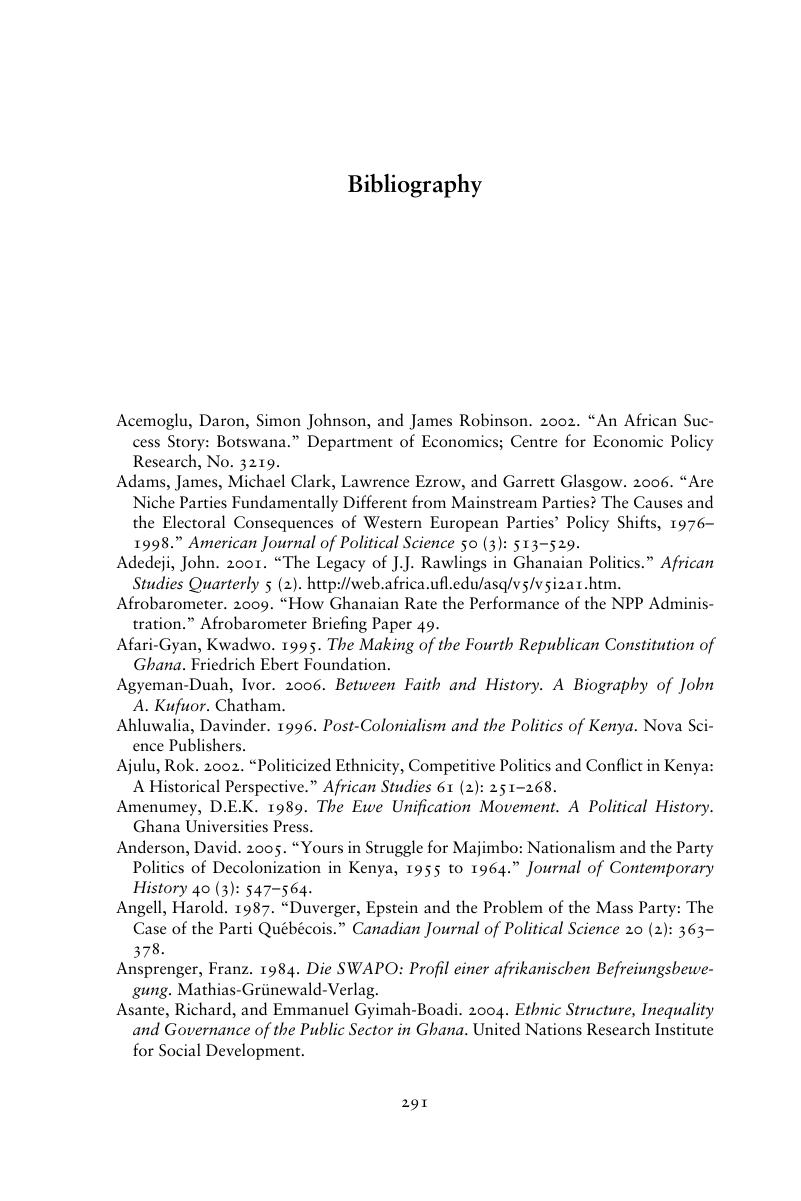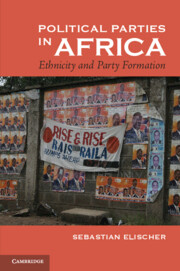Book contents
- Frontmatter
- Dedication
- Contents
- Tables
- Abstract
- Acknowledgments
- 1 Comparative Politics and Political Parties in Africa
- 2 A New Framework of Comparison for Political Parties
- 3 Kenya: The Ubiquity of Ethnic Parties
- 4 Namibia: The Dominance of Nonethnic Parties
- 5 Ghana: The Ubiquity of Nonethnic Parties
- 6 The Diversity of African Party Politics
- 7 Explaining the Formation of Nonethnic Parties
- Conclusion
- Annex A Operationalization of Secondary Party Types
- Annex B The Standard MRG Coding Frame
- Annex C Number of Effective Programmatic Categories
- Annex D Summary of Party Nationalization Scores (PNS) and Party Divergence Scores (PDS)
- Annex E Result for MRG Coding Scheme
- Annex F PNS Calculated on the Basis of Afrobarometer Data
- Annex G Scope of Party Systems Covered
- Annex H Party Nationalization Scores (PNS) of the Preliminary Cases
- Bibliography
- Index
- References
Bibliography
Published online by Cambridge University Press: 05 June 2014
- Frontmatter
- Dedication
- Contents
- Tables
- Abstract
- Acknowledgments
- 1 Comparative Politics and Political Parties in Africa
- 2 A New Framework of Comparison for Political Parties
- 3 Kenya: The Ubiquity of Ethnic Parties
- 4 Namibia: The Dominance of Nonethnic Parties
- 5 Ghana: The Ubiquity of Nonethnic Parties
- 6 The Diversity of African Party Politics
- 7 Explaining the Formation of Nonethnic Parties
- Conclusion
- Annex A Operationalization of Secondary Party Types
- Annex B The Standard MRG Coding Frame
- Annex C Number of Effective Programmatic Categories
- Annex D Summary of Party Nationalization Scores (PNS) and Party Divergence Scores (PDS)
- Annex E Result for MRG Coding Scheme
- Annex F PNS Calculated on the Basis of Afrobarometer Data
- Annex G Scope of Party Systems Covered
- Annex H Party Nationalization Scores (PNS) of the Preliminary Cases
- Bibliography
- Index
- References
Summary

- Type
- Chapter
- Information
- Political Parties in AfricaEthnicity and Party Formation, pp. 291 - 316Publisher: Cambridge University PressPrint publication year: 2013



